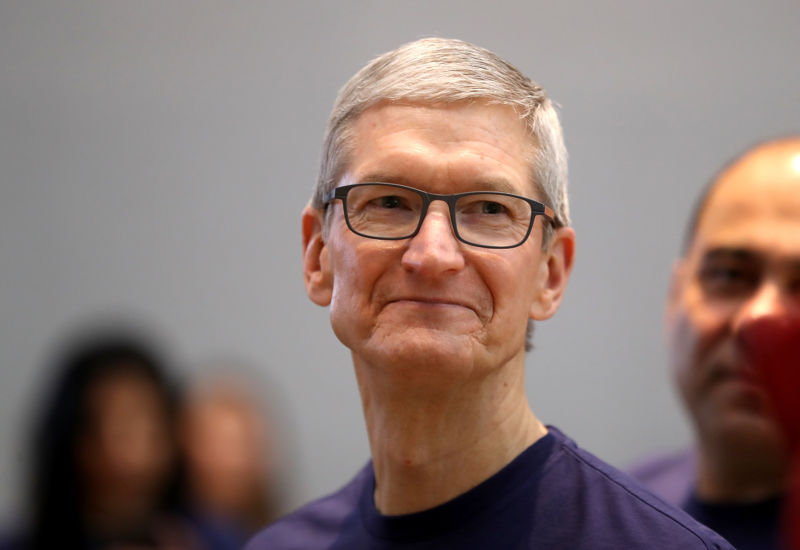
Apple CEO Tim Cook further condemned white supremacists when he accepted an award from the Anti-Defamation League at an event in New York on Monday. The ADL honored Cook with its first ever Courage Against Hate Award, and the tech CEO took his time on the stage to address Apple's stance against hate speech and what he thinks are tech companies' responsibilities to customers.
"From the earliest days of iTunes to Apple Music today, we have always prohibited music with a message of white supremacy," Cook said. "Why? Because it’s the right thing to do. And as we showed this year, we won’t give a platform to violent conspiracy theorists on the App Store."
He went on to say that tech companies shouldn't be afraid to take the moral high-ground and stand up against hate speech and discrimination of all sorts.
"My friends, if we can’t be clear on moral questions like these, then we’ve got big problems," Cook said. "At Apple, we are not afraid to say that our values drive our curation decisions. And why should we be? Doing what’s right—creating experiences free from violence and hate, experiences that empower creativity and new ideas—is what our customers want us to do."
Tech giants have been forced to wrestle with hate speech this year, as well as their nebulous responses to it on their platforms. Conspiracy theorist Alex Jones made waves earlier this year after a series of videos and posts from his account and InfoWars' account prompted bans from YouTube, Apple, Facebook, and Twitter.
In this case, Apple initially removed most of InfoWars' podcasts from its platforms. It was a strong response at the time because Apple chose to remove all episodes of the podcasts in question rather than just specific episodes with inflammatory content. However, the InfoWars app remained available in the App Store at the time.
But Apple followed up about one month later by removing InfoWars' app from its App Store, citing content that was "offensive, insensitive, upsetting, intended to disgust, or in exceptionally poor taste."
Apple's actions contrasted with slower responses from Facebook and Twitter. Facebook initially banned Jones for 30 days before deciding to remove multiple pages run by Jones and InfoWars from the platform all together. Twitter initially dished out an even smaller punishment to Jones—a one-week ban—before permanently banning him and InfoWars.
Cook has a history of speaking out on social issues and standing up against hate and discrimination. His remarks indicate that Apple is ready for any other hate speech challenges that come its way. Tech companies like Facebook and Twitter have taken a more hands-off approach to inflammatory speech in the past, but that strategy may not work as well now as it once did. In the same way that Apple wants to differentiate itself from its competitors on privacy, it aims to do the same when it comes to hate speech.
reader comments
1131